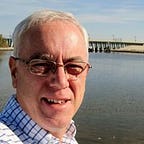Head Case — Paul Broca
Paul Broca, physician and surgeon, identified the specific region in the brain that controls speech. In 1861, Broca published results of an autopsy on a patient who completely lost his ability to speak in adulthood, 20 years before his death. The autopsy revealed damage in the left frontal lobe of the brain, which Broca surmised to be the area that controls speech.
This result was confirmed when the autopsy on a second patient, who also had suffered a loss of speech, found damage in exactly the same area of the brain. Broca’s finding provided a key insight into how the brain is organized, and it stimulated further efforts to map functions of the body onto the areas of the brain that control them.
Broca’s work had the unfortunate result of reviving the study of phrenology, which was flagging by the mid-19th century. Practitioners of phrenology used differences in the size and shape of the skull to compare different species of animals and to explain the perceived differences in the races of the human species.
Broca was genuinely interested in promoting the scientific study of the human species in the broadest possible terms, and he is considered to be the father of modern anthropology. In the 19th century, anthropologists tended to use statistics uncritically, often to bolster the argument that a natural hierarchy exists among humans with the race of white Europeans comprising nature’s aristocratic class.
Broca took the somewhat more liberal that no such hierarchy exists and each race is perfect in and of itself. However, this did not stop Broca from proclaiming that statistics on size and shape of the skull would provide insights into the “anatomy and physiology” of human societies.
Paul Broca is one of the 72 scientists and engineers named on the Eiffel Tower. Broca’s brain sits in a jar on a shelf at the Museum of Man in Paris.
